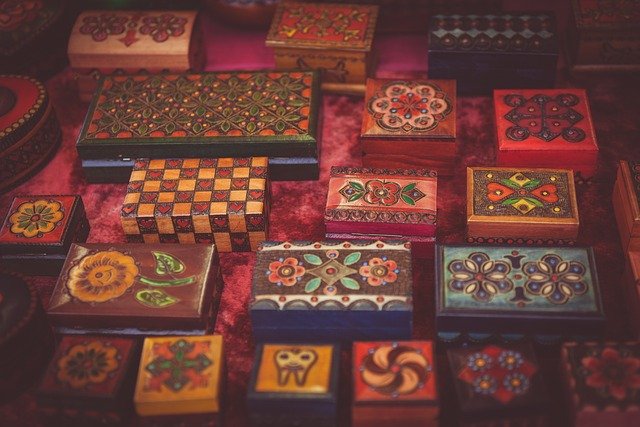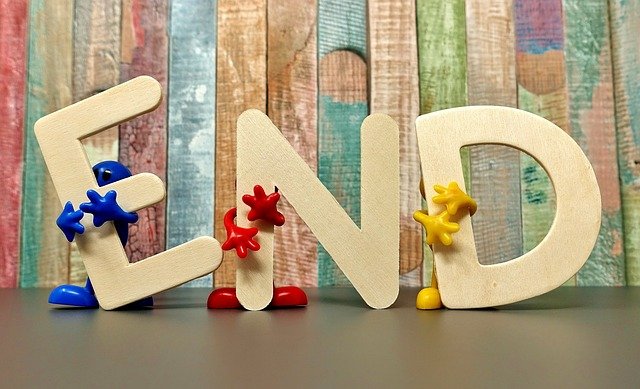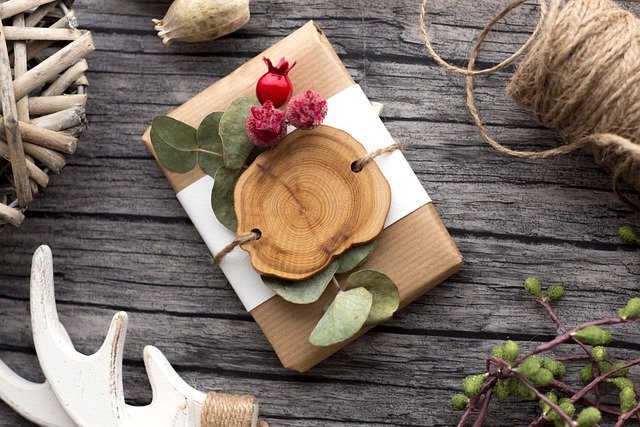Introduction to the Power of Gifts
The tradition of gift exchange has existed for centuries and is time-honored, with a place in every culture and society being a unique way of showing your appreciation and love. Is more than just a commercial transaction but demonstrates that you have thought of someone and can gift, induce, adventure, and excite any bond from family, and friends to partner. But gifting itself has its emotional side and it can replace feelings that words often cannot express.
A gift is an expression of the giver — or rather, the giver must be the expression of the giver about the desire of the receiver. An offering of sorts, enshrined in our communal memories, experiences, and sentiments. A gift on a birthday, to return some favor or just the pure essence of love are the only things that bring joy to the face and make an imprint deep within. Equally important about connection, because when granted, it acknowledges the presence of that person in your world.
The emotional impact of giving the gift is not only for the recipient, who whenever receiving a gift will feel delighted but also for the givers, when choosing and presenting an ideal gift, will feel gratified and delighted. This creates a dynamic where the recipient feels like he/she has to pay it back, thus strengthening the bond between both people. Moreover, gifts can also restore equilibrium or make an apology, demonstrating that the giver has a vested interest in the relationship overall.
So, this post is centered around the power of gifting as an integral part of not just any connection, but especially meaningful, long-lasting ones. Gifts play an important role in a variety of relationships. The strategic gifts discussed below will help you in your interactions and will help to create the defining moments along the way that will develop relationships with your new connections into deeper working partnerships.
There is Science Behind the Psychology of Gift Giving and This is Why We Offer Gifts.
Conclusion Gift giving is a collective social activity that contains more emotional and thus psychological dimensions as such, provides the most basic social function which is fostering social ties. Gift-wrapping and unwrapping, as well as observing their behavior, helps individuals experience gratitude and happiness in giving. Hall (2001) highlights these novel and crucial skills in presenting gifts to others, emphasizing the joy in giving. Even just sharing these feelings can become a bridge — and more warmth, tenderness, intimacy, and proximity between people.
But one gift-giving theory more significant than others—one that you can pretty much guarantee will rear its head later on in this post—is the theory of reciprocity. It expresses the idea that with a gift there is something in the other person that will normally awaken an urge to return the gift or some kind of counter-gift. These interactions can help solidify social connections between locals and promote a degree of trust and mutual reliance between locals and visitors. Hence presents are a gallery of great deeds which is over the price, also a discourse which would delineate care and attention.
In addition to that, giving releases neurotransmitters such as dopamine and oxytocin which means you will feel happier and will feel an emotional bond with these people. This neurochemical response indicates gifting is a way to strengthen existing relationships and create new ones. Expressing appreciation and understanding is inextricable as well from social bonding and ties that bind, and the right gift can elicit the feelings of appreciation and pleasure associated with receiving gifts that are well received.
Aside from this, exchanging gifts may provide memories for those involved — on a significant event or milestone, it aids in building connections. This is the notion that when gifts are intentional i.e. the focus is on the other and not you, then the gifts become not just mere physical things; they become representations of love, validation, and lastingness between people. Intrigued by the psychology of giving, neuroeconomics illuminates the underpinnings of this complex relationship, revealing both the depth and the depth of gift-giving in human relationships.
Thoughtfulness (as gifts)
Gift-giving is a wonderful tradition; it achieves so much more than mere commerce — it is a communal medium to display the taste and consideration of the gift-giver. A carefully picked gift is mostly a good understanding of the choices and tastes of the person being gifted, thus it carries a great memory in a relationship. It can also be particularly special to select a gift that expresses something related to the soul of the recipient, or realms of interest portrayed, as it indicates interest more than a surface check on what they know about the interested soul, or what they desire.
Of course, the thought that goes into gifting comes from the relationship between both persons. This means if a friend, partner, or family member is really into whatever type of hobby — gardening or painting for example — gifting something that adheres to that interest, like decent quality supplies or a thoughtful book, demonstrates the gift-giver took the time and effort to figure out how to bring this person joy. These kinds of actions, demonstrating awareness and consideration ultimately create paths for emotional bonding to take place.
Otherwise, in any milestone of life, be it anniversaries, birthdays, or even in grief, presents are proof of concern. Celebratory gifts mean that something happened together and we are happy you did boom boom with him/her/it, while gifts to comfort someone mean that a person is here to comfort and assure in the relief he/she/it is here for you. Each time is a new opportunity to speak what remains unspoken. The attention that people pay to gifts over here co-creates an exchange, therefore, and turns commercialization into a true exhibition of the importance of the relationship.
So thoughtful gifting is nothing but glue in a simpler form that connects hearts and grows closer and deeper and good quality relationships. These gifts are – if done with care – not just bits of matter purchased from a shop, but solidified deposits of love, of intent sensualized and deeply felt.
Gifts are of real importance to every culture and society.

Around the world, gift-giving has become part of the culture and customs of different societies. Various customs and ways are there in various cultures for a genre of the act of gift-giving, which necessarily reflect their values, beliefs, and social connections. The concept of gifting is a symbol of respect and gratitude in many cultures. For example, Omiyage in Japan is anything from souvenirs to the knickknacks people buy for their family members or friends to take back after a trip but it has a deeper meaning where the expectation is for the people to be considerate and not just bring them back a random thing regardless of its power symbolically in being associated with your trip (you were done traveling when you were supposed to be done traveling).
Rather, presented items, which additionally are a significant aspect cycling around crucial life experiences. Any festivity ranging from weddings to birthdays and anniversaries is usually celebrated with gifts and gift is not only the merit of any event, but also luck, and loyalty. Birthday gifts are amongst the most popular ways in which individual-oriented Western societies attempt to celebrate the importance of the self while also reinforcing friendship and family ties. And then, again, a good amount of African culture that celebrates communally is still mostly a collective gift, thus, there is no receipt coming from the start, but from a common enjoyment instead.
Whether between two individuals or in larger structures of community, gifts forge bonds. They allow for common values to take hold, for collective events to be acknowledged, and for each other to exist. As we approach gift-giving from this perspective of culture, it serves as a representation of the social glue that helps us fill in the pieces of the puzzle of life.
This brings me back to the dialog I started this post with about experience and connectedness.
Shared experiences are perhaps the only thing that brings out that bond among us people which we all thirst for in our relationships. While these experiences are gifts on their own, they provide an opportunity for memories and shared experiences that may solidify a personal bond. Going to another place, participating in things, or merely hanging out doing the things you both like doing with different individuals and associates during this period then evokes a sense of being corporate. In contrast, I believe experiences deepened connection more than gifts, in particular material or physical ones.
Take traveling for instance, it evokes a sense of teamwork and collaboration — as couples or friends are often thrown into situations that ask them to tackle fresh challenges and experiences together. It is laughter in addition to shared tribulation that builds intimacy from shared journeys to strong stories that weave themselves into a relational narrative. Also, engaging in activities will give individuals an insight into each other’s character, likes/dislikes, and value systems. This is a crucial part of that discovery process because it shows similarities and aligns feelings with the idea of home.
Physical gifts may still give you some extra emotional boost, along with bonding experiences. It ties the experience in with a chosen token, a memento, perhaps from the trip they took together, and the item allowing a reminder of the time they spent together. This links to happy memories and stimulates conversations where you can remember those happy times. Now those experiences are priceless, and the experience itself could only enhance the sentiment delivering the bond. This means that the marriage of experiences across time spent together with good gifts is not just a strength in the sense of the good times had by people together — it is also an indication of the nature of that relationship and just how much another person is worth to those people.
Gifting in a relationship
Gift-giving comes into romantic relationships, but it is not like the other tools, it can connect partners or add them to spin the wheel as far as they can from each other. Thoughtful gifts do bring people closer and make people understand each other better, therefore closer. A gift is love, gratitude, and commitment — emotions that are worth more than the actual price of the gift. By designing or choosing a gift, they’re communicating to the loved one that the relationship and the feelings in it are meritorious. It is necessary to have such an understanding to grow a healthy relationship.
Additionally, gifts are markers that highlight your special timeline events and milestones as a couple. Take for instance an anniversary gift that reminds couples of their wonderful journey together, celebrating their relationship itself and meanwhile bringing in these physical manifestations of memories from such occasions onto the fabric of lives together. The act of gifting creates a sense of belonging and togetherness as partners. Whether it is a handwritten note or an extravagant display of affection, a gift is a gift because of the thought that it conveys.
Aside from the realization of good times and celebrations shared, gifting holds the power to prevent problems that may arise in a romantic relationship before it even becomes an issue. Sometimes a gift with good intentions can be your symbolic apology or token of concern, the needle in the haystack! It also gives her partner the words for what might be difficult to say, which fosters an emotional connection. More simply said the gift communicated, wrapping the arms of clarity and compassion even in these challenging moments.
Gifting in Romantic Relationships — A Complicated Affair By bringing 1) — It adds 2) — 3) The Existing Myth True, as partners we do wear some things down, but the four-letter word called a gift, here I mean the goodwill offering is one of the things that sustains the relationship and can even revive the lovey-dovey charm.
What Should I Give Them? Gift Ideas Related To Your Relationship To The Gift Recipient
The right gift comes down to your relationship and the reason for the celebration. When choosing a fitting gift, an awareness of the types of relationships in play is crucial. Then some picks are appropriate for friends, family, co-workers, and significant others.
If your gift is for a friend, consider something personalized, related to something you both did together or even an inside joke. You can gift ideas things like tailor-made wine spectacles, a photograph e-book full of amusing memories, or possibly a playlist., which will express admiration and thoughtfulness. Or simply choose concert tickets or a voucher for a spa day that will make lasting memories together and strengthen the friendship.
When it came to family, these decisions had the potential to be differentiated based on the relationship. A gift for the parents, such as handmade or canvas family portraits, may refresh that nostalgia while warming their hearts again. Books, a basket filled with snacks or gourmet food, or a subscription service, is nice for the siblings (personalized to their hobbies and interests of course). You are gifts that will be remembered with your characteristic personalities.
Your coworkers are usually more serious about everything. Quality notebooks, desk organizers, or even personalized mugs stay practical and serve as thoughtful gifts for the office by creating a more positive workspace. Otherwise, if the purpose of the occasion is to honor a work buddy for a particular milestone, a collection of gift cards or a team-unifying gift — such as a collective activity to bond over in the office — can also work wonders.
Finally, gift-giving is an act of intimacy, especially when it comes to partners. Jewelry, love letters, or even weekend getaways can be the kind of gift that strikes the right note. In a Relationship, You Can Create Weekend Memories by Packing Surprise Dinner & Making Memory Jars (Special Memories List Etc.) So Everything Can Change Your Relationship.
At the end of the day, gifting to align with our dearest relationships is mindful yet strengthens your relationships. Your bond with him/her is entirely different and that perfect gift is not some shining and paid thing.
Dos and Don'ts of Gift-Giving
A good way to upgrade relationships is gifting but as they say, anything done without proper guidelines can misfire big time on a proper note. If this sounds like your kind of thing, then adhering to these dos and don’ts can enhance the vice versa experience — for both giver and receiver.
Above all, remember what your relationship with the recipient is like. The right rules for a gift depend very much on whether you know the person concerned well or not. A gift that is less generic may have a better response from close friends or family members. Gift cards, and office supplies, are neutral gifts along the lines of general gifts, and should most likely be set aside for acquaintances or professionals.
And, another timing to be conscious of when gifting items. The best time to give a gift can be a birthday or a holiday. But on the other hand, a surprise gift for the results of his work, or moral help in difficult times only has a positive memory. But a gift is also about how you are presenting what you are giving, so choose a suitable way of gifting it.
Be personalized where you can, this is hard to remember but do it as the majority of people have their own favorites. Gifts that align with the interests of the recipient show extra care and thoughtfulness, and they also strengthen connections. If you want to dazzle your guests, a handwritten note can sweeten the deal even more!
But then don’t underestimate what cultural differences matter. Knowledge of customs and practices that impact gift-giving rituals is really important as something might be perfectly acceptable in one culture but in another, it is not. Rethink yourself as the recipient god, do not impose your worth on the Except. What you think was a well-thought-out gift might not be as special to another.
Pay attention to these gift-giving dos and don’ts and you will be able to navigate the gift-giving minefield and ensure that your gestures strengthen interpersonal ties rather than complicate them.
Conclusion: The lasting legacy of the present

When we examine the parameters of gifting, we understand gifts—more than mere items—are fundamental manifestations of love and relationships. As we have shown in this discussion, a truly thoughtful gift may be to get to know someone you become emotionally connected with and help you belong. This significance carries over into all relationships, whether platonic, romantic, or familial.
Gift-giving is another one of those things that can allow for the creation of desired bonds over time (when done purposefully so, obviously). Each gift is accompanied by a story and each represents a piece of emotion, often becoming the very object around which memories are created. From our examples, we observed how the emotional appeal of a gift can fix bridges, fill us with love, and savor differences between closeness. You see, things like this—regardless of how small—have the potential to stay with a person for quite some time, which makes it all the more lovable that we can show some form of appreciation and love with the physical act of gifting something.
Moreover, a gift is not about a mere transaction but about the feeling and well-wishing of a giver. And it makes all the more sense that relationships need to be nurtured and taken care of, like plants & flowers that blossom on kindness, therefore calling for efforts for you to see the results – Meaning, hard work & effort nurtured to bloom, & flourish, relationships. Think about the concept of gifting and why they are connected and practice this will enhance communication and deeper bonding.
Readers need to have imbibed the seriousness of gifting. Gifts as tools to deepen relationships give rise to opportunities to deepen relationships with others. Always remember that the true gift is not a matter of how expensive or great the gift is. It is what the gift represents which is the love and thoughtfulness behind it. As people start to engage with this ancient mode of connecting, the connective benefits of partnership will become apparent.



